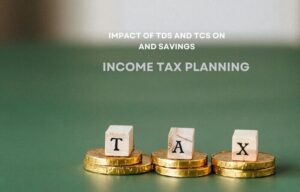Did You Know You Have to Pay Taxes on Crypto Investing?

Cryptocurrency is an exciting market for investors and tech enthusiasts alike. The market has been making dramatic headlines for huge price swings while innovations in the crypto world continue to generate new products and great ideas.
But investors have to pay taxes when they trade cryptocurrency. As governments increasingly track cryptocurrency transactions and take punitive measures against traders who don’t file their taxes, it’s more important than ever for you to learn how to file crypto taxes and plan your trades to reduce your tax bill.
This is what you need to know about paying taxes on crypto investments.
1. Learn Your Tax Due Date
It’s a simple place to start, but it’s important. If you trade cryptocurrency through a corporation, your tax due date will be different than if you trade as an individual. While the tax due date for individuals is the same every year, April 30 unless it falls out on a weekend, for certain incorporated small businesses, it’s six months after the end of the corporate tax year and for other corporations, it is four months after the corporate year-end.
2. Bookkeeping
You need to keep records of all of your cryptocurrency transactions. Here’s what you need to record:
- How much you paid for a cryptocurrency?
- How much you earned when you sold cryptocurrency?
- How much a cryptocurrency was worth on the date that you used it to pay for goods or services?
- The dates of all your transactions.
You should keep records of all your crypto transactions for a minimum of six years.
3. Unfiled Taxes
If you have unfiled crypto taxes from past years, don’t panic. There are ways you can pay your taxes without facing unnecessary penalties or tax evasion prosecution. Start by going to cryptotaxlawyer.com and finding out about the Voluntary Disclosure Program. Through the program, you can fix previous years’ tax returns. Be prepared to pay the taxes you should have paid originally, but the program should help you avoid any additional penalties for late filings, such as interest charges or prosecution for tax evasion.
4. Business Income or Capital Gains
How frequently you trade a cryptocurrency can make a big impact on how much you have to pay in taxes. As part of your tax plan, you should know if your profits from crypto trading will be considered business income or capital gains.
While the topic is somewhat complicated, capital gains rates are usually applied to investments that you require for long-term holding. For example, you’ve owned shares that you bought on the stock market for the last ten years, but now you want to cash in. But if you’re a frequent trader, professionally or as an amateur, your trading might be considered a business, and the profits are business income.
If capital gains taxes apply, only 50% of the income you earn is taxable, but if your earnings are considered business income, 100% of the income is taxable.
Read More: Seven Tips And Tricks To Maximize Profits In Crypto Trading
5. Earnings Through Mining and Staking
Once you determine capital gains versus income, it’s all fairly simple dealing with taxes from the sale of cryptocurrency, but if you get involved in mining or staking, it can be more complicated. Mining and staking generate income, and you will have to pay taxes appropriately.
6. Sales Taxes
If you buy or sell goods or services in exchange for cryptocurrency, may still be on the hook for paying sales tax or value-added tax/GST where you live. Sales taxes will be based on the fair market value of the cryptocurrency at the date of the transaction.

Mahesh Kumar is a dynamic marketing consultant and tech enthusiast with a passion for driving business growth through his innovative strategies and cutting-edge technology. With 6 years of experience in the industry, he has helped numerous businesses leverage the power of digital marketing to reach their target audience, build brand awareness, and increase sales.







